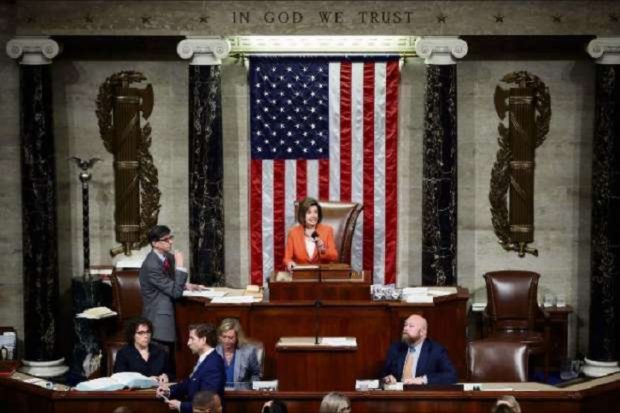
US Congressional committee passes EAGLE act to address Chinese challenge
PTI, Jul 16, 2021, 10:04 AM IST

Washington DC: Seeking to strengthen ties with QUAD countries, a key Congressional committee has passed legislation aimed to address the challenge posed by China.
House Foreign Affairs Committee passed the Ensuring American Global Leadership and Engagement or EAGLE Act at its meeting here on Thursday.
The legislation along with other things includes key provisions that will strengthen American diplomacy and leadership in the Indo-Pacific, including in response to the challenges presented by China.
“I have often said that the United States policy towards China should be to engage in competition when necessary, strengthening our sources of strength at home, and also define what it means for China to ‘cheat’ by strengthening international institutions, laws, and norms,” said Congressman Joaquin Castro.
“The EAGLE Act does just that, providing the United States government the tools and direction to protect our interests in the Indo-Pacific,” he said.
The bill seeks to establish US policy that the United States ambassador to the United Nations serves as a member of the President’s cabinet.
It includes key provisions of the WMD Act to counter the People’s Republic of China’s proliferation of ballistic missiles and nuclear technology to the Middle East and seeks to strengthen the US Development Finance Corporation by increasing its liability cap from USD 60 billion to USD 100 billion and requiring its equity investments to be treated as consistent with the Federal Credit Reform Act, significantly improving its ability to make investments to support international development goals.
The bill urges the US government to strengthen US engagement with allies and partners in this critical part of the Indo-Pacific and includes provisions to strengthen people-to-people engagement between the United States and the nations of Southeast Asia.
The bill extends key provisions to the Asia Reassurance Initiative Act that supports US priorities in the Indo-Pacific and is set to expire in 2023 by three years to 2026 and expanding the authorisation of appropriations from USD 1.5 billion a year to USD 2 billion a year.
It calls on the International Olympic Committee to rescind ‘Rule 50’ which prohibits political expression by athletes when competing in the Olympics and affirming the rights of athletes to criticise the governments hosting any athletic competition.
The legislation supports establishing a Quad Intra-Parliamentary Working Group to promote ties between legislators of the United States, Japan, Australia, and India – key partners with shared values and interests in the Indo-Pacific.
It seeks to extend the statutory authorisation of the Global Engagement Center, an innovative Department of State office that counters disinformation by US adversaries, which is due to expire in 2024 by three years to 2027, consistent with earlier unsuccessful efforts by Representatives Castro and Gallagher to extend the authorisation in the FY21 National Defense Authorization Act.
Udayavani is now on Telegram. Click here to join our channel and stay updated with the latest news.
Top News

Related Articles More

Baku climate talks: The ‘X’ factor that could determine future of Global South
India-US ties have strong foundation: White House confident in navigating crisis over Adani bribery charges

PM Modi leaves for home after concluding three-nation visit

China announces new policy measures to protect its exports from Trump’s new tariff threat

Pak government prepares for proposed protest by former PM Imran Khan’s party on Nov 24
MUST WATCH
Latest Additions

Youth attempts suicide after being humiliated in public for wearing ripped jeans in Belthangady

Baku climate talks: The ‘X’ factor that could determine future of Global South

Kerala HC denies bail to police officer accused of ‘raping’ minor Dalit girl

Global Bhagavad Gita Quiz Announced: Registration now open

Kasaragod: Husband murders woman PSI
Thanks for visiting Udayavani
You seem to have an Ad Blocker on.
To continue reading, please turn it off or whitelist Udayavani.






















